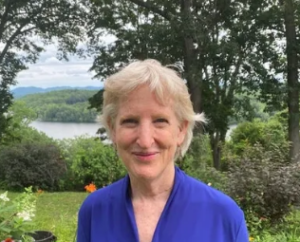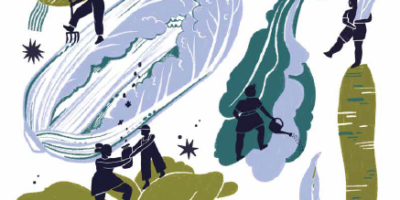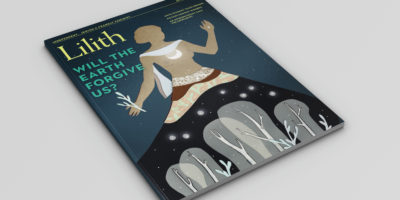
“Judaism is Ecological at its Heart”

Photo from ecojusticeforall.org
In 1988, when many people were ignoring ecologists, Rabbi Ellen Bernstein founded Shomrei Adamah (Keepers of the Earth), the first Jewish ecological organization in the U.S. Rabbi Bernstein sought to draw attention to the “ecological heart” of Judaism.
Arielle Silver-Willner: You describe the ecological crisis as a “spiritual crisis.” How do you connect Judaism, feminism and ecological justice?
Rabbi Ellen Bernstein: My initial goals were to create educational materials that illuminated the ecological (which often coincide with spiritual) dimensions of Jewish texts and practices, and to inspire folks to “green” their synagogues. I always believed that Judaism was ecological at its heart, environmentalists that the ecological dimensions had been overlooked for centuries, since we humans understandably tend to focus on the human aspects of our stories, not the ecological ones.
Many cultures understand the land/earth as a feminine energy. In Hebrew, the words for land—aretz and adamah—are feminine. The land is generative and brings forth life. The land, the earth, is the source of our lives—the source of our food, our shelter. It is our habitat and we are its inhabitants. For generations we have overlooked the life-giving nature of the land and have treated her as a commodity. We have exploited the earth for our own private gain.
In theory, according to the Bible, we are not allowed to “own” the land, because God owns the land. It is for everyone to hold and care for as a joint trust. We are to be stewards of the land. If everyone had the same access to it, we would not suffer the kind of gross inequalities and injustices that we are dealing with today.
You’ve offered important insights about how we talk about the natural world, spirituality and gender. What language should we embrace or eliminate here?
I try to avoid the word “environmentalist.” The word “environment” literally does not mean much—it refers to your surroundings. “Environment” doesn’t capture the life-giving essence of the land, the earth. Furthermore, the word “environmentalist” has become politicized and associated with the left only. I believe we will never be able to help restore the earth until we speak across the political divide and across the religious/ secular divide. As long as we use language that alienates the other side, we will just be fighting a war of ideology. Working for restoring the earth, planting trees, establishing neighborhood solar co-ops, cultivating urban farms and gardens—these are activities that everyone can agree upon and engage in—that will help improve the health of the earth and our communities and our individual lives.
I think it’s important for ecology to be at the center of our cultural consciousness—not just political and social. In the Jewish community, the Jewish farming movement is the most vibrant manifestation of this—young Jewish farmers are turning synagogue and Jewish community lands into community farms, and often giving food away—sharing with those people most at
risk in the community.
Your new book, The Promise of the Land, is an ecologically focused Haggadah. What is one idea you would like to see the Jewish community bring into our observances?
Passover celebrates freedom. However we will only be free when our earth is healthy and able to support our lives for the long term. If the earth’s systems are polluted and overheated, it will begin to break down and will be unable to support the kind of life we have enjoyed. When life is compromised there can be no freedom.
I speak of land universally as any land. The “promised land” is the land with which we live in reciprocal relationship. vibrant manifestation of this—young Jewish farmers are turning
synagogue and Jewish community lands into community farms, and often giving food away—sharing with those people most at risk in the community.
Your new book, The Promise of the Land, is an ecologically focused Haggadah. What is one idea you would like to see the Jewish community bring into our observances?
Passover celebrates freedom. However we will only be free when our earth is healthy and able to support our lives for the long term. If the earth’s systems are polluted and overheated, it will begin to break down and will be unable to support the kind of life we have enjoyed. When life is compromised there can be no freedom.
I speak of land universally as any land. The “promised land” is the land with which we live in reciprocal relationship. Learning to love the land is the first step that can help people find their own individual ways to protect it. There are a million ways to restore the earth. Advocacy is one way. I take walks daily, and I try to love the places I visit. I tell the trees that I love them.
Growing a garden or even some plants indoors, working in animal shelters, purchasing food locally, giving money to local environmental justice organizations, paying attention to where you invest your savings and making sure you are not supporting coal and oil companies are other ways. I integrate all these things into my life. I recently moved back to the city so that I don’t need to drive anymore and can participate in local organizations I love. We need to find activities that will nurture us as we do our best to help nurture the earth.



